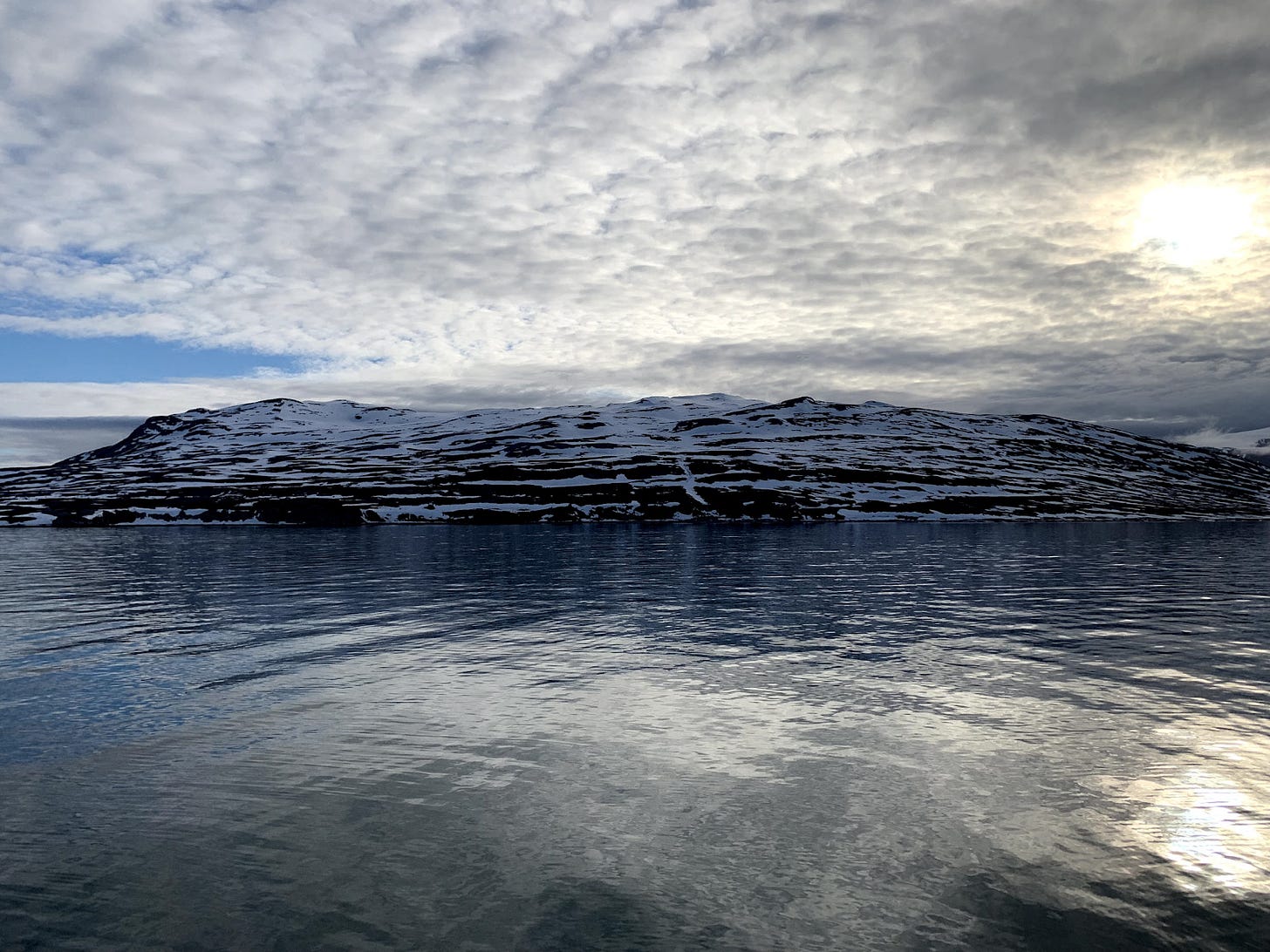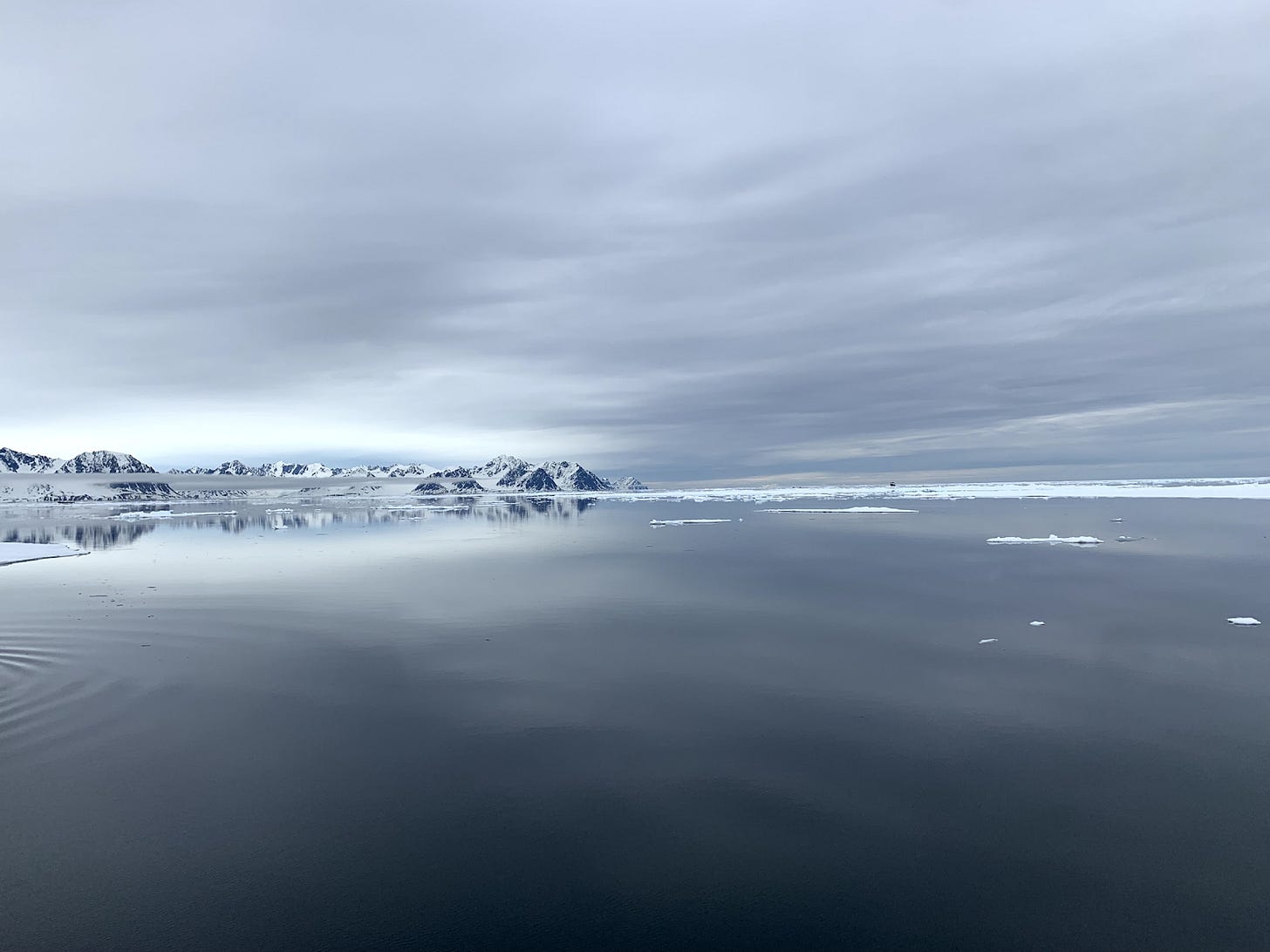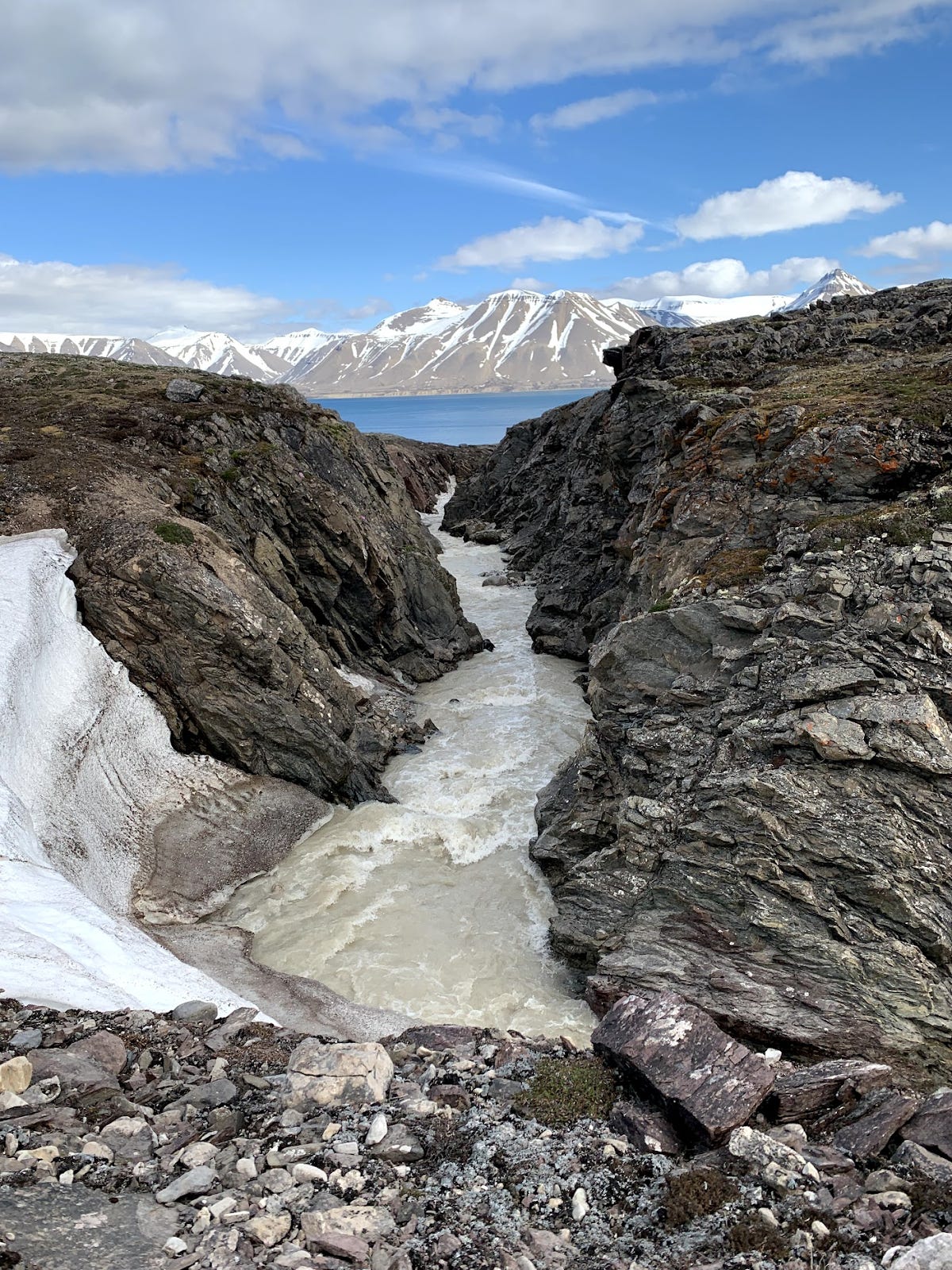Why is this interesting? - The Arctic Edition
On Svalbard, citizenship, and an interesting approach to open borders
Atossa Araxia Abrahamian (AAA) is a longtime friend, and candidate for most interesting woman in the world. In addition to holding Swiss, Canadian, and Iranian passports, she also wrote an incredibly interesting book about the global passport trade and the state of modern citizenship. Her writing has appeared in The New York Times, New York Magazine, and the London Review of Books. Here she files a WITI first: an Arctic edition reported from Svalbard, “a Norwegian archipelago where anyone, theoretically, can live without a visa.” - Colin (CJN)
Atossa here. I’ve never thought of myself as the kind of person who’d go to the Arctic. In fact, I’ve spent most of my career as a journalist finding ways to avoid cold weather. It started when I flew to Bratislava one February to profile a man who was stateless by choice; it was so miserable that I vowed to never go somewhere colder or darker than I needed to be again.
Luckily, I’d already started to report on the global passport trade—a beat as shady as it was, er, sunny—and, while writing The Cosmopolites, managed to turn work trips into beach vacations. (Or was it the other way around?) I reported from Malta to the Comoro Islands to the Eastern Caribbean; one year, I skipped winter in New York entirely, returning just in time for bare legs and rosé.
Since my book came out, my interest in buying and selling citizenship has informed my new obsession: borders. I’m fascinated by where they are, what they look like, who they let in and keep out. Most of all, I think about the ways in which all of this reflects bigger political ideas about statehood, citizenship, and sovereignty. That’s how I encountered Svalbard, a Norwegian archipelago where anyone, theoretically, can live without a visa.
Svalbard is probably most famous for its doomsday vault that stores the world’s seeds deep inside a frozen mountainside. It features in Phillip Pullman’s His Dark Materials trilogy and Ian McEwan’s Solar. But my interest was more geopolitical: it’s a unique kind of territory, governed unlike any place in the world, and I knew I had to see it for myself. I recently spent two weeks on an art residency sailing around the area in a barquentine and reading up on its history, its geography, its people, and its climate—which is warming faster than anywhere on earth.
Why is this interesting?
Most of the time, when a given country rules over a piece of land, it’s allowed to treat its own citizens differently from foreigners: in other words, to discriminate in a way most people find totally normal and acceptable.
But Svalbard is different. Since a treaty signed during the Paris Peace Conference after WWI, it’s been fully Norwegian when it comes to political governance, yet subject to certain international treaty obligations as well. Svalbard can’t be used for “warlike” purposes, like attacking nearby Russia; Norway is bound to protecting its environment and wildlife; and perhaps most unusually, the state cannot discriminate against citizens of other countries when it comes to immigration, hunting, fishing, or other types of commerce.
Svalbard’s open borders aren’t exactly egalitarian: would-be residents have to figure out how to get there (currently, there are commercial flights only through Norway, which requires transit visas of some passport holders) and support themselves financially.
It’s not a model that could easily work anywhere else, but it does show us that some discriminatory forces can be tempered by international obligations—and that’s something we could all keep in mind these days. (AAA)
Photos of the Day:
A few pictures from my trip. (AAA)



Quick Links:
There’s been a ton of excellent travel writing about the Arctic: Arctic Dreams by Barry Lopez, this Believer essay by Colin Dickey, Kathryn Schultz’ take on why writers love the Arctic so much, and, for a polar opposite, Jenny Diski’s Skating to Antarctica. (AAA)
A Q&A with the editor of Ice People, the world’s northernmost alt-weekly. (AAA)
A video about Pyramiden, an abandoned Russian coal town on Svalbard. (AAA)
Christian Petzold’s Transit is one of the best movies (on the theme of borders, or otherwise) that I’ve seen in a long time: it’s an homage to Casablanca that’s set before World War 2, but filmed in modern-day France, and it’s available on most streaming services. (AAA)
The best music for sailing in the Arctic is by Johann Johannsson. (AAA)
Thanks for reading,
Noah (NRB) & Colin (CJN) & Atossa Araxia Abrahamian (AAA)


